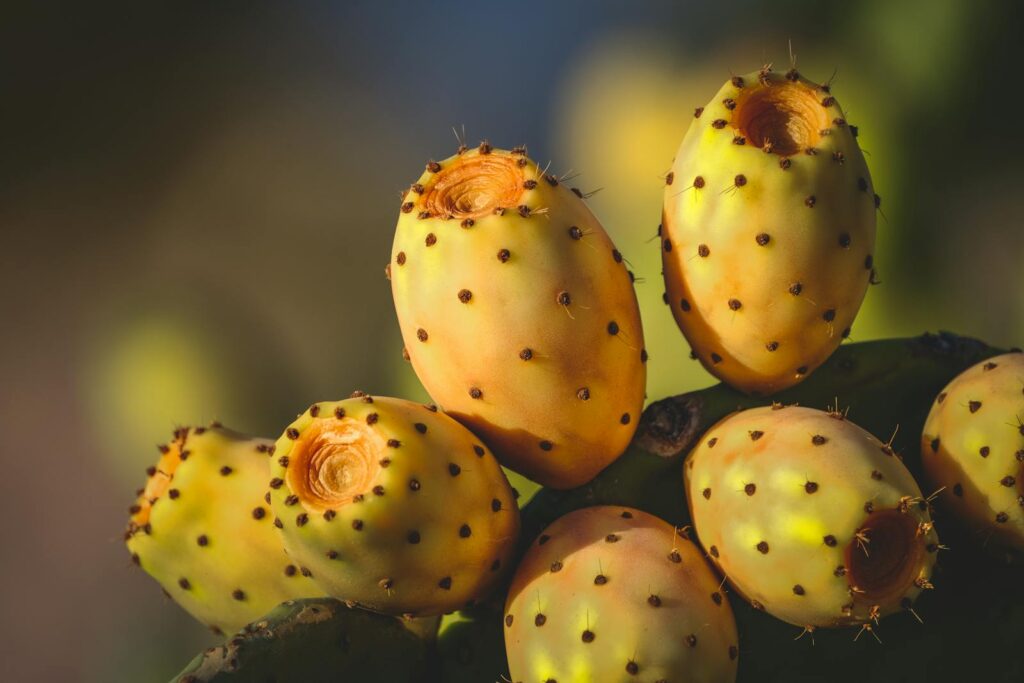Cactus fruit, often called prickly pear or nopal fruit (Opuntia species), is a vibrant and refreshing fruit that grows on the pads of the prickly pear cactus.
Known for its sweet, slightly tangy flavor and striking colors (ranging from green and yellow to deep red and purple), cactus fruit is not only delicious but also highly nutritious.
Let’s explore its benefits, properties, and possible contraindications.
Nutritional Properties of Cactus Fruit
Cactus fruit is low in calories yet rich in essential nutrients. It contains:
- Vitamins: Especially vitamin C, B-complex vitamins, and vitamin E.
- Minerals: Magnesium, potassium, calcium, and iron.
- Fiber: Both soluble and insoluble fiber, great for digestion.
- Antioxidants: Betalains, flavonoids, and carotenoids that protect cells from oxidative stress.
- Natural sugars & water content: Hydrating and energizing.
Health Benefits of Cactus Fruit
1. Rich in Antioxidants
The betalains and flavonoids in cactus fruit help fight free radicals, reducing inflammation and lowering the risk of chronic diseases.
2. Supports Digestive Health
Thanks to its high fiber content, cactus fruit promotes healthy digestion, prevents constipation, and supports gut health.
3. Helps Regulate Blood Sugar
Studies suggest that cactus fruit may help stabilize blood glucose levels, making it potentially beneficial for people with type 2 diabetes.
4. Boosts Immune System
The vitamin C content enhances immunity, helps wound healing, and supports overall vitality.
5. Good for Heart Health
Its potassium and magnesium help regulate blood pressure, while antioxidants support healthy cholesterol levels.
6. Hydrating and Energizing
With high water content and natural sugars, cactus fruit is refreshing in hot climates and can help maintain energy levels.
⚠️ Contraindications and Precautions
While cactus fruit is generally safe and healthy, there are a few things to keep in mind:
- Digestive discomfort: Eating too much can cause bloating, diarrhea, or mild abdominal cramps due to its high fiber content.
- Blood sugar concerns: Since it can lower blood sugar, people taking diabetes medication should monitor their levels carefully to avoid hypoglycemia.
- Allergic reactions: Rare, but possible in sensitive individuals. Start with small amounts if you’ve never tried it before.
- Interactions with medication: If you’re on medications for diabetes, blood pressure, or blood clotting, consult a doctor before consuming cactus fruit regularly.
- Seeds caution: The small, hard seeds can cause mild constipation if consumed in excess.

Cactus fruit is more than just a colorful delicacy—it’s a nutrient-packed fruit that supports digestion, heart health, and immunity while offering refreshing hydration.
Like all foods, it should be enjoyed in moderation, especially if you have underlying health conditions or take medication.
Whether eaten fresh, blended into juices, or used in jams and desserts, cactus fruit is a unique way to add both flavor and wellness to your diet.

